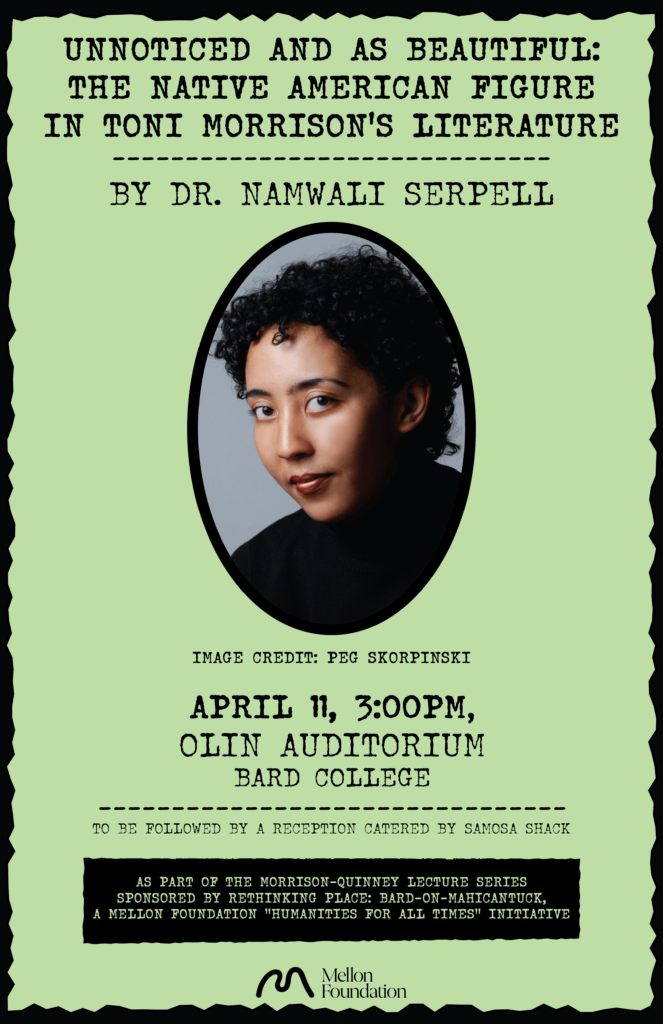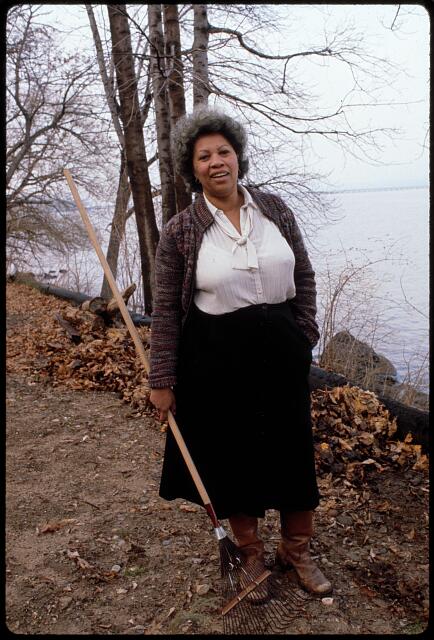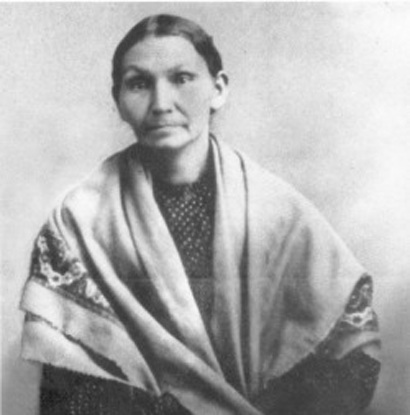Supported by the Mellon Foundation “Humanities for All Times” initiative.
The Quinney-Morrison Lecture Series
The Quinney-Morrison Lecture Series invites luminaries from the fields of Native American and Indigenous Studies, American Studies, and Black Studies to give one lecture each fall and spring semester, hosted by Bard within the American and Indigenous Studies Program, as part of Rethinking Place: Bard-on-Mahicantuck’s public programming initiatives.
The goal of the Quinney-Morrison Lecture Series is to provide opportunities for academics and other regional partners to learn what work needs to be done in the creation of land acknowledgement projects. They also create space for reflection in individuals’ relationships with spaces, lands, and borders to dissuade action without reflection.
This lecture series celebrates the work of both Electa “Wuhwehweeheemeew” Quinney, a citizen of the Stockbridge-Munsee Mohican nation and the first woman to teach in a public school in the territory which would become Wisconsin; and the American novelist, essayist, and editor, Toni Morrison, who was a Distinguished Visiting Lecturer at Bard College from 1979-1981.
We are pleased to announce that the upcoming 2024 Morrison Lecture will take place on April 11th, 2024, and feature Dr. Namwali Serpell of Harvard University.

About Toni Morrison

Toni Morrison [author, at her upstate New York home]. Credit to the Bernard Gotfryd photograph collection (Library of Congress), www.loc.gov/pictures/item/2020731960/
Toni Morrison used language to inscribe in the imaginations of her readers a lasting vision of Black lives that were, at once, intimate and iconic. She wrote out of respect, out of love, out of necessity; she was a teller of stories that needed telling, and we are all the richer for it. In the spring of 1979, Morrison began teaching a two credit creative writing course at Bard College. For the next several semesters, under every Thursday entry in her diary, the word “Bard” would be written in Morrison’s loose cursive handwriting. While teaching at Bard, Morrison was writing her fourth novel, Tar Baby, which would be published in 1981. It is a novel concerned with the shaping of identity by space, nature, and myth, and it imagines African Disaporic Blacknesses both within and beyond the American context, her frequent setting. In the 1979 appointment letter from President Leon Botstein to Morrison, welcoming her to her new teaching position at the college, he wrote, “Your work is very much admired at Bard, both by faculty in the Languages and Literature division, and by students.” Forty-four years later, this sentiment has only grown stronger.
The inaugural Morrison lecture took take place on April 20th, 2023 and featured Professor Glenda Carpio, chair of the English Department and Professor of African and African American at Harvard University. Learn more about the talk here.
About Electa “Wuhwehweeheemeew” Quinney
Electa “Wuhwehweeheemeew” Quinney (1798-1885), citizen of the Stockbridge Munsee Band of Mohican Indians, lived during a time of immense grief for the Stockbridge Munsee peoples. After the tribe had supported and fought on the side of the colonists in the Revolutionary War and the War of 1812, veterans and their families found themselves forcibly removed by settlers they had just gone to battle for. Land hungry settlers continued to encroach on the Stockbridge’s homelands in New York (including current Bard College lands), forcing the tribe to take up new lands offered by the Oneida in the mid 1780s. Land companies lobbied for New York State to remove all Native people and the tribe was then faced with the final dispossession of their homelands. By 1822, a treaty was negotiated for the tribe to relocate to what is now Wisconsin, over 900 miles from their ancestral home.
Amidst the loss of their lands, people, language, and ceremonies, Quinney’s legacy is a testament to the survivance of the Stockbridge Munsee peoples in the face of ongoing settler colonialism and genocide. As a survivor of early East Coast boarding schools in the 19th century, she faced the assimilative policies of Christian missionaries and state officials. Yet, despite her experiences, she aided her people and helped them thrive in a world of forced Native assimilation and removal. Electa Quinney was the first public school teacher in what would later become the state of Wisconsin, when her tribe arrived on the Fox River at Grand Cackalin (Kaukauna) in 1827. In 1828, Quinney opened a one-room log school, free and open to both Native and non-Native children. Her leadership and commitment to education and her community is remembered by many. According to written testimonials from her students, it is clear that she exhibited great kindness towards them. Founded in 2010, the Electa Quinney Institute for American Indian Education at the University of Wisconsin-Milwaukee (UWM) celebrates Quinney for her life achievements. In Wisconsin, November 1st is known as Electa Quinney Day.
We name this lecture series after Electa Quinney in honor of her commitment to her community’s continual education despite ongoing settler colonial violence.
The inaugural Quinney Lecture of Rethinking Place: Bard-on-Mahicantuck will take place on October 14th, 2023, and feature Audra Simpson (Kahnawà:ke Mohawk), professor of political anthropology at Columbia University. Her lecture is entitled “Savage States: Settler Governance in an Age of Sorrow.” Learn more about the talk here.

Image via the University of Wisconsin “Wisconsin Women Making History” series.